If you’ve already read our quick start guide, you know just how powerful and versatile TeamPal can be when building AI into your workflows. As you dive deeper into using AI for your tasks, the next big step is selecting the right AI model to match your unique business goals.
TeamPal offers a robust lineup of AI models, from cost-effective options for small tasks to high-powered models for mission-critical operations. But with so many options, how do you find the perfect fit to equip your agents?
This guide breaks it down for you—detailing each model, its strengths, and the best scenarios to deploy it.
Let’s explore your options and make sure you’re armed with everything you need to tailor TeamPal AI to your specific needs.

Define Your Business Goals
Before choosing an AI model, ask yourself:
-
What task needs to be supported? (e.g., customer support, writing, data analysis)
-
How complex is the task? Does it require detailed, nuanced comprehension or just basic content?
-
What is your credit budget for running the model?
Understanding the scope and complexity of your task will help narrow down the options.
Overview of TeamPal's AI Models
TeamPal provides a range of AI models, each tailored for different use cases and credit consumption. Here’s a quick comparison to help you get started:
|
AI Model |
Cost per Request |
Best for |
Strengths |
|
GPT 4o Mini |
1 credit |
General tasks with basic language understanding. |
Cost-effective for basic automation or simple text generation. |
|
GPT 4o |
15 credits |
Tasks involving skills, integrations, and complex handling. |
Highly versatile with robust problem-solving capabilities. |
|
o3 Mini (Reasoning) |
5 credits |
Science, math, and coding-focused tasks. |
Strikes a balance between cost-efficiency and enhanced performance compared to basic models. |
|
GPT 4.1 Mini |
3 credits |
General tasks with improved performance. |
Provides a balance between intelligence, speed, and cost for versatile use cases. |
|
GPT 4.1 |
15 credits |
Complex tasks requiring nuanced comprehension. |
Advanced model for detailed problem-solving and high-quality content across domains. |
|
Claude 3.5 Haiku |
1 credit |
Basic content creation and general text generation. |
Economical with a strong performance for straightforward writing tasks. |
|
Claude 3.5 Sonnet |
10 credits |
Creating detailed articles, narratives, and nuanced writing. |
Enhanced contextual understanding for more sophisticated content generation. |
|
Claude 3.7 Sonnet (Reasoning) |
15 credits |
Sophisticated content creation with deep comprehension. |
Premium model for refined writing and nuanced understanding. |
|
Gemini 1.5 Pro |
20 credits |
Complex tasks requiring a deep understanding of context. |
Top-tier performance for intricate tasks and high-priority processing. |
|
Gemini 2.0 Flash Lite |
1 credit |
Cost-efficient and low-latency tasks. |
Optimized for affordability and quick responses. |
|
Gemini 2.0 Flash |
2 credits |
Fast and cost-effective processing of general and moderately complex tasks. |
Optimized for balancing speed and accuracy with efficient processing. |
|
Gemini 2.5 Pro Preview (Reasoning) |
15 credits |
Advanced reasoning over complex problems in code, math, and STEM. |
Google’s state-of-the-art model for analyzing large datasets, codebases, and documents using long context. |
|
Gemini 2.0 Flash Thinking (Reasoning) |
15 credits |
Fast reasoning tasks with balanced speed and depth. |
Ideal for efficient problem-solving with analytical depth. |
|
Deepseek R1 (Reasoning) |
5 credits |
Complex analytical tasks requiring logical precision. |
Cost-saving model specializing in advanced reasoning and detailed analysis. |
|
Grok 3 Mini Beta (Reasoning) |
2 credits |
Logic-based tasks that do not require deep domain knowledge. |
Lightweight model that thinks before responding. Fast, smart, and provides raw thinking traces. Excels at reasoning tasks. |
|
Grok 3 Beta |
20 credits |
Enterprise tasks like data extraction, programming, and text summarization. |
Beta model with cutting-edge capabilities for complex problem-solving. |
Key Factors to Evaluate Before Choosing
The model you choose depends on three key factors.
Task Requirements
-
Simple text generation or content: GPT 4o Mini, Claude 3.5 Haiku, and Gemini 2.0 Flash Lite provide excellent, budget-friendly options.
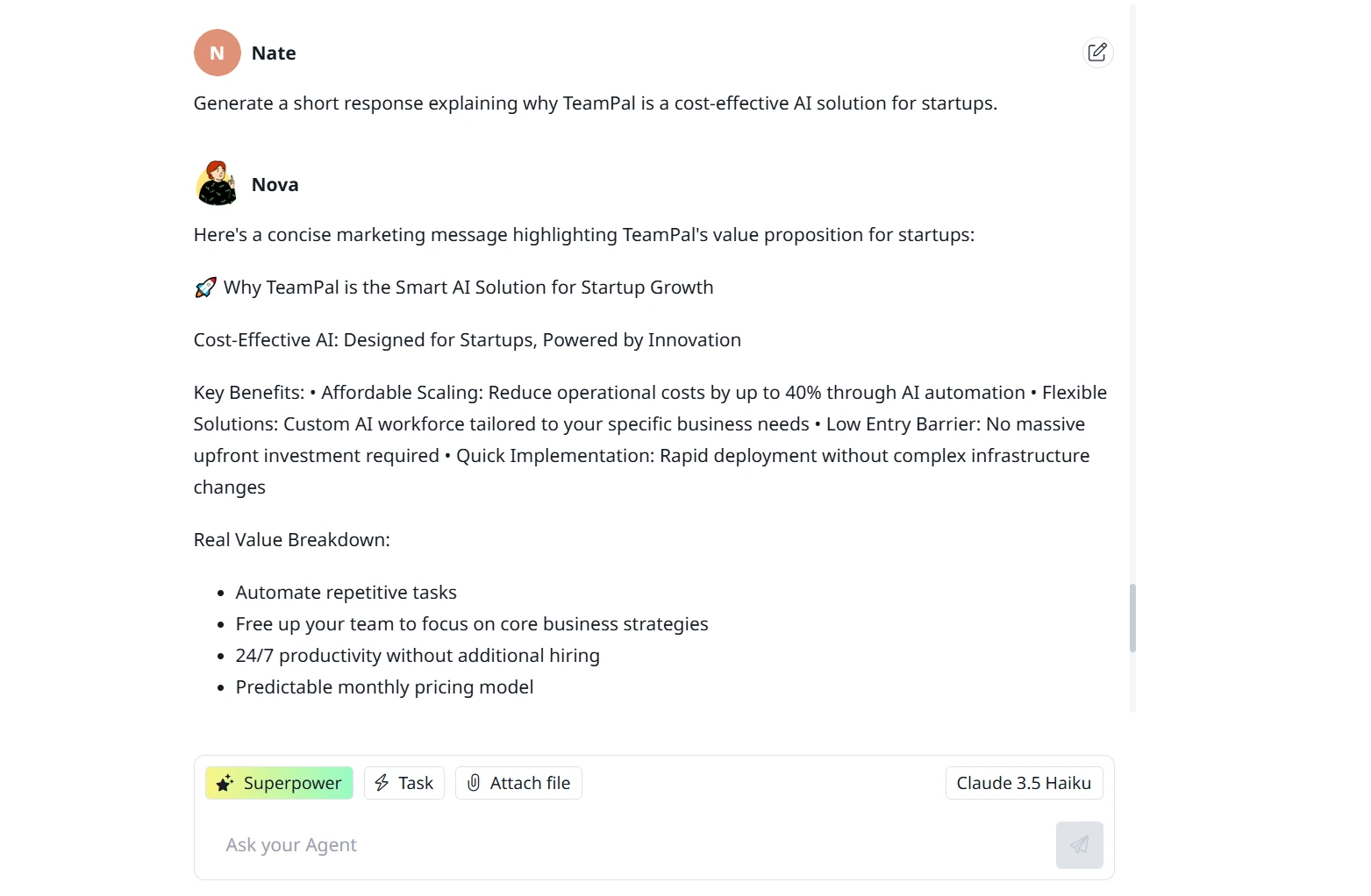
-
Moderately complex language comprehension: Opt for o3 Mini, GPT 4.1 Mini, Gemini 2.0 Flash, or Gemini 2.0 Flash Thinking for balanced performance and affordability.
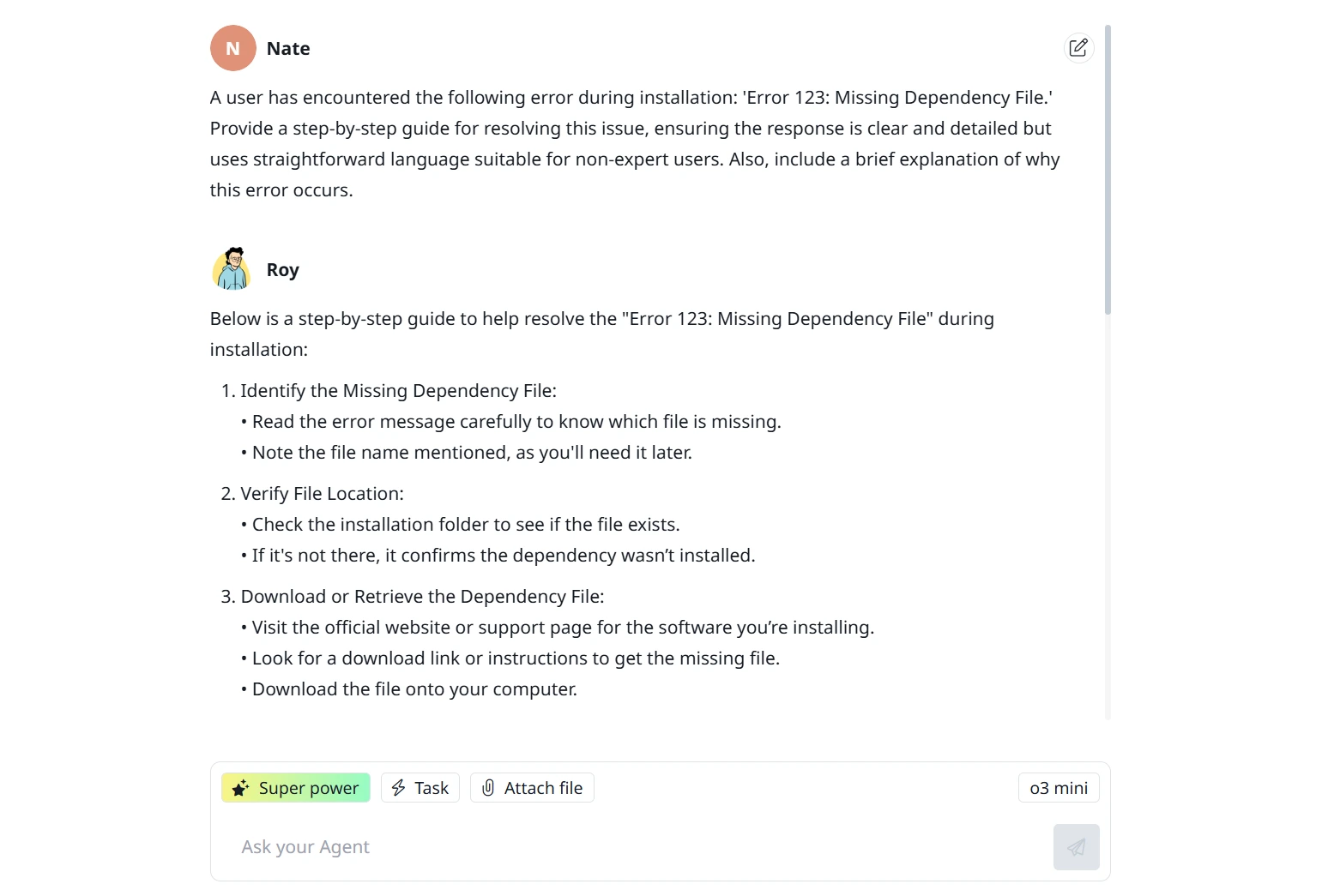
-
Detailed, nuanced writing: Choose GPT 4.1, Claude 3.5 Sonnet, or Claude 3.7 Sonnet for sophisticated content creation.
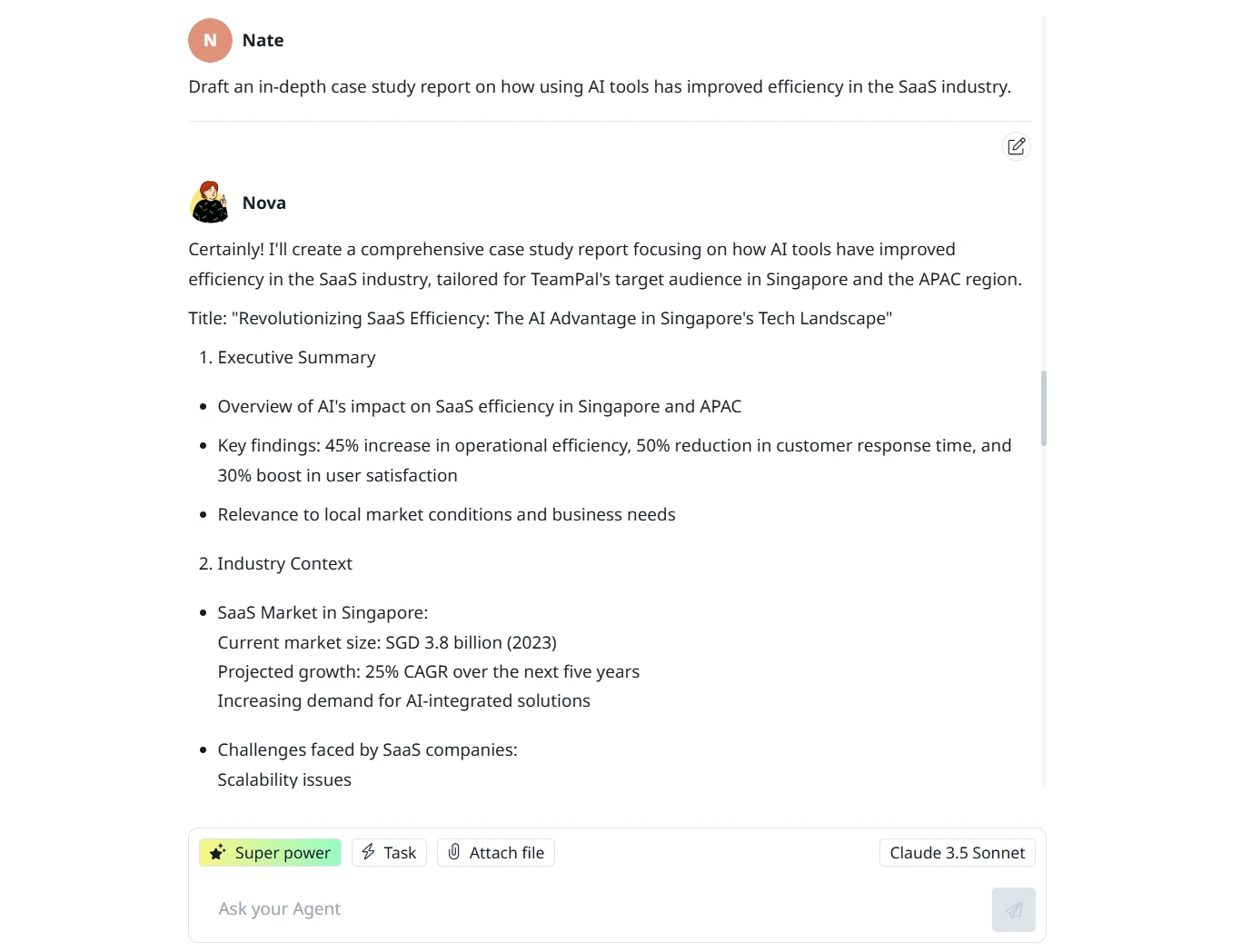
-
Fast automated operations: Gemini 2.0 Flash Lite, Gemini 2.0 Flash, or Gemini 2.0 Flash Thinking are your go-to models for quick responses.
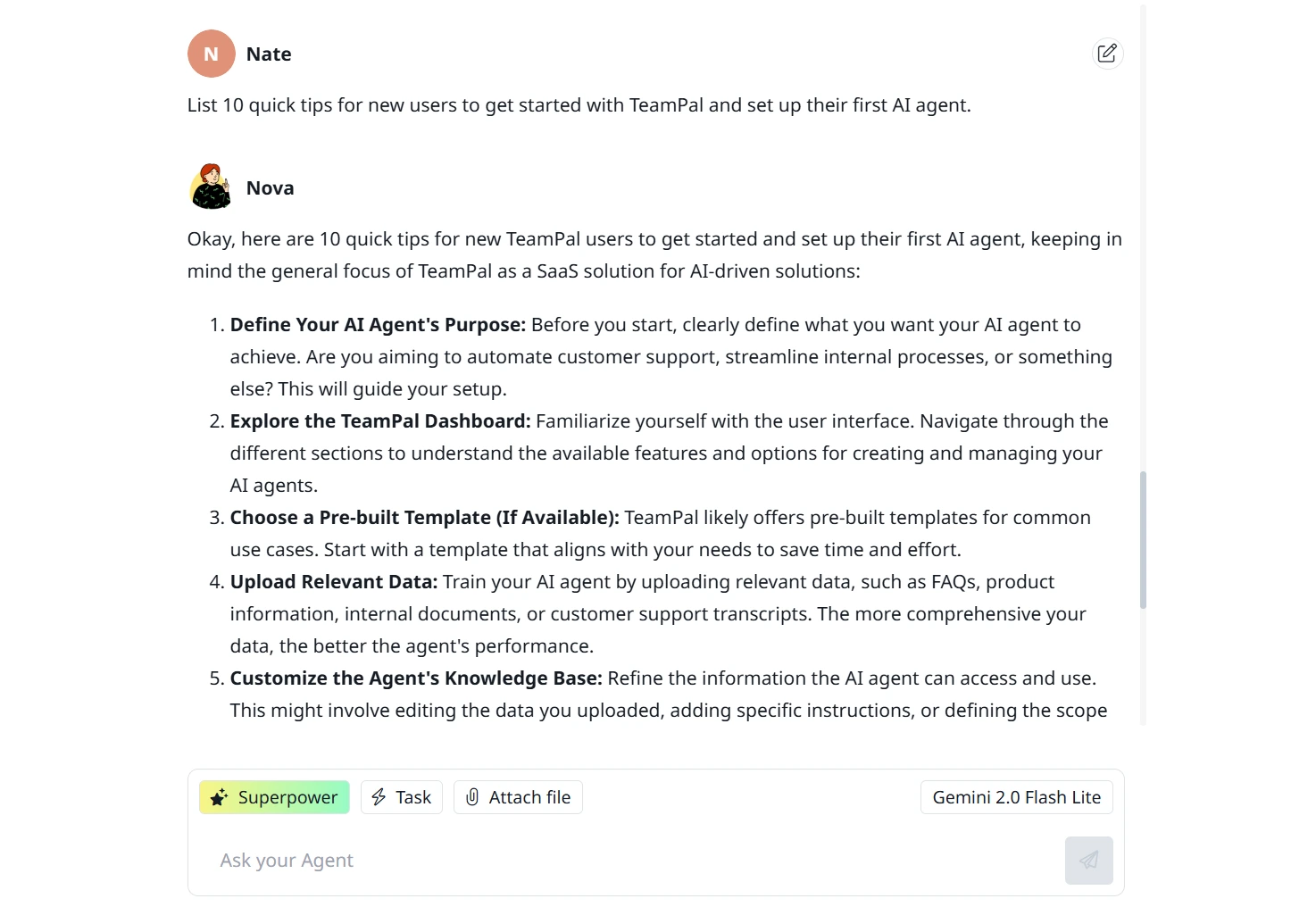
-
High-priority, advanced reasoning tasks: Use o3 Mini, Claude 3.7 Sonnet, Gemini 2.0 Flash Thinking, Gemini 2.5 Pro Preview, Deepseek R1, or Grok 3 Beta for complex analytical tasks or mission-critical processes.
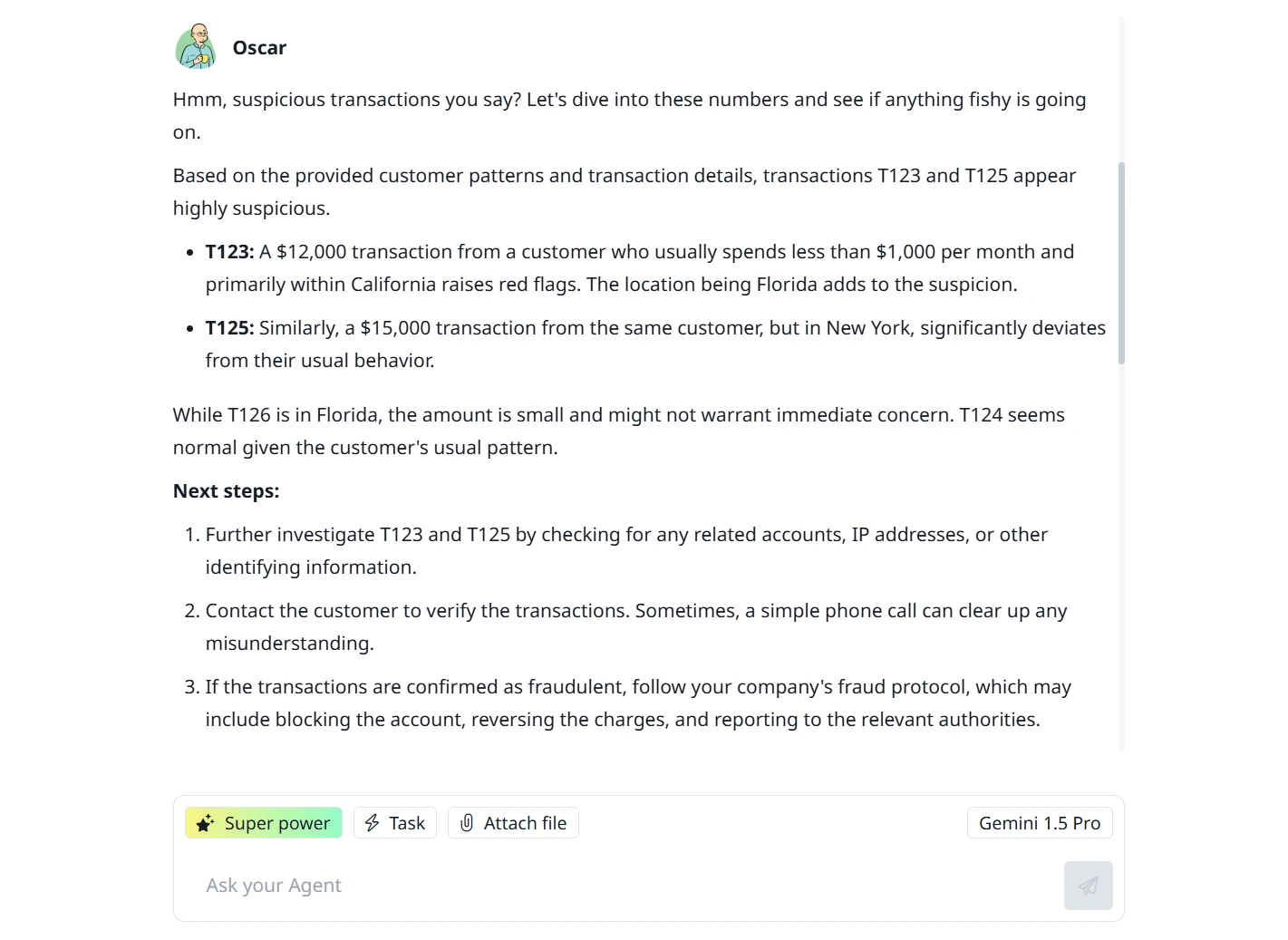
Budget and Credit Usage
-
Cost-effective use: GPT 4o Mini, Claude 3.5 Haiku, and Gemini 2.0 Flash Lite ensure great efficiency at just 1 credit. These are budget-friendly options for small teams or startups.
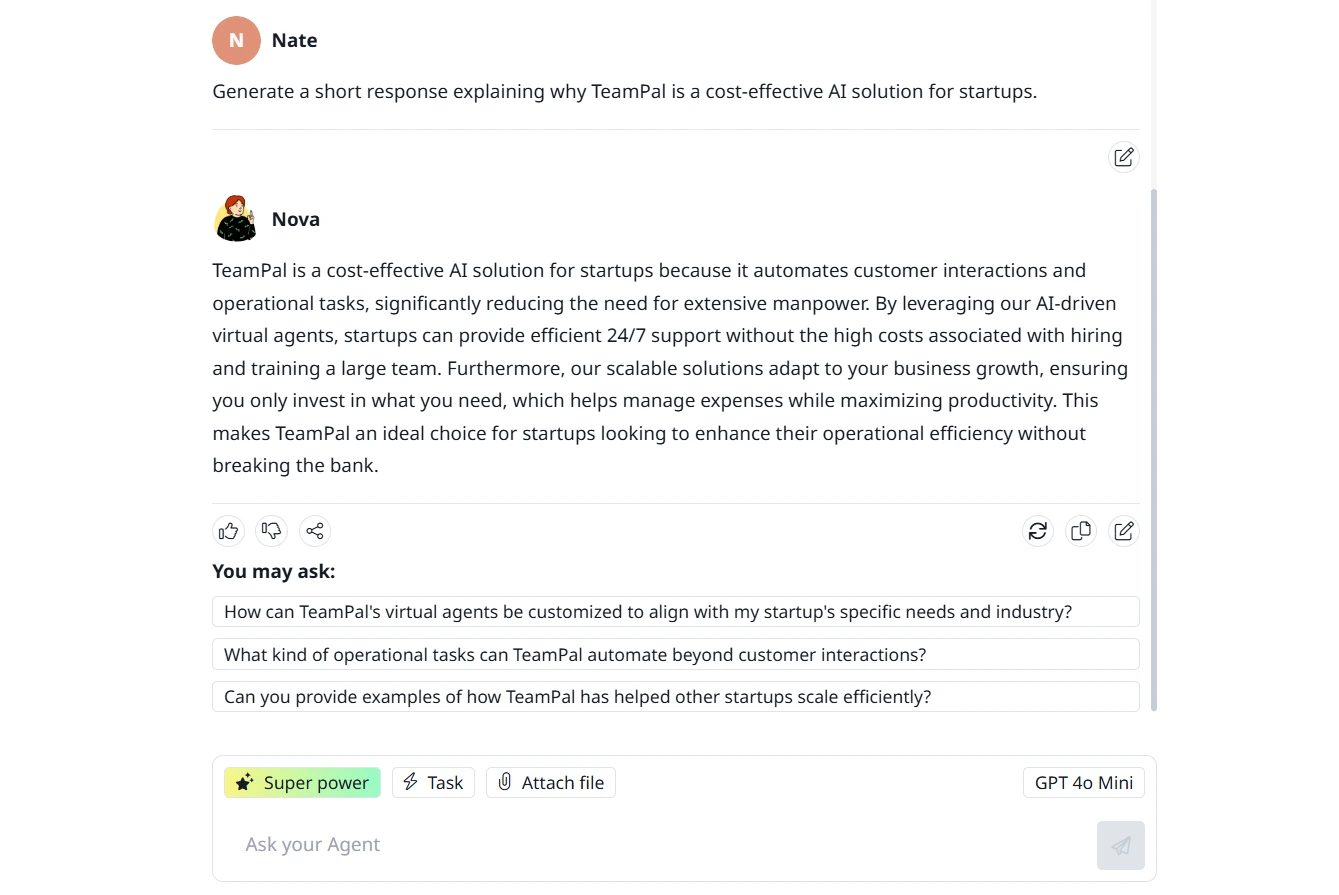
-
Intermediate cost and performance: o3 Mini, Gemini 2.0 Flash, and Deepseek R1 offer a middle ground for users requiring enhanced processing while keeping credit consumption manageable.

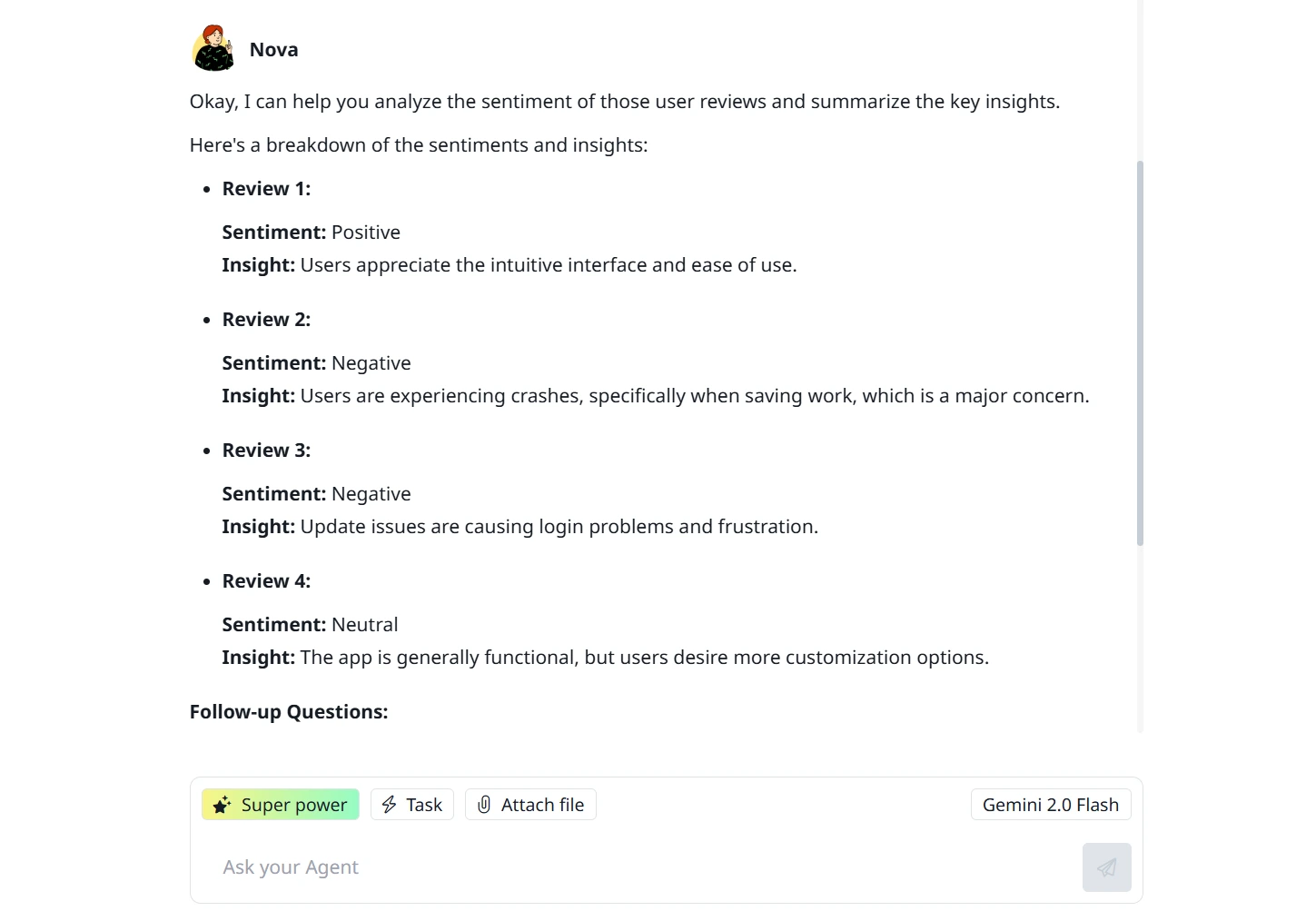
-
For performance without limits: Models like GPT 4o, GPT 4.1, Claude 3.5 Sonnet, Claude 3.7 Sonnet, Gemini 2.0 Flash Thinking, Gemini 2.5 Pro Preview, and Grok 3 Beta consume more credits but provide unmatched quality in handling critical or highly complex tasks.
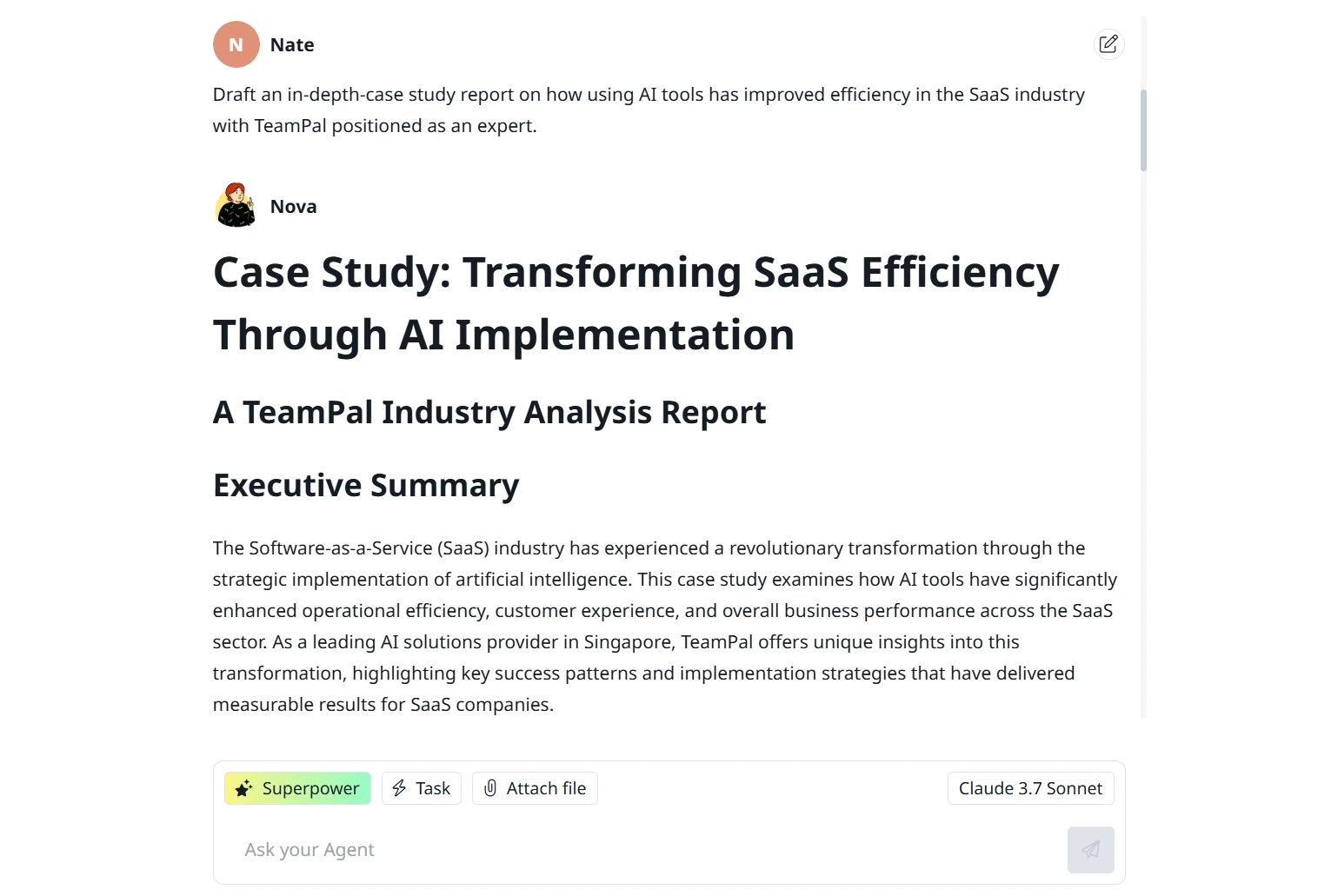
Balance Between Speed and Quality
-
For quick responses: Go with models like Gemini 2.0 Flash Lite, Gemini 2.0 Flash, or Gemini 2.0 Flash Thinking.
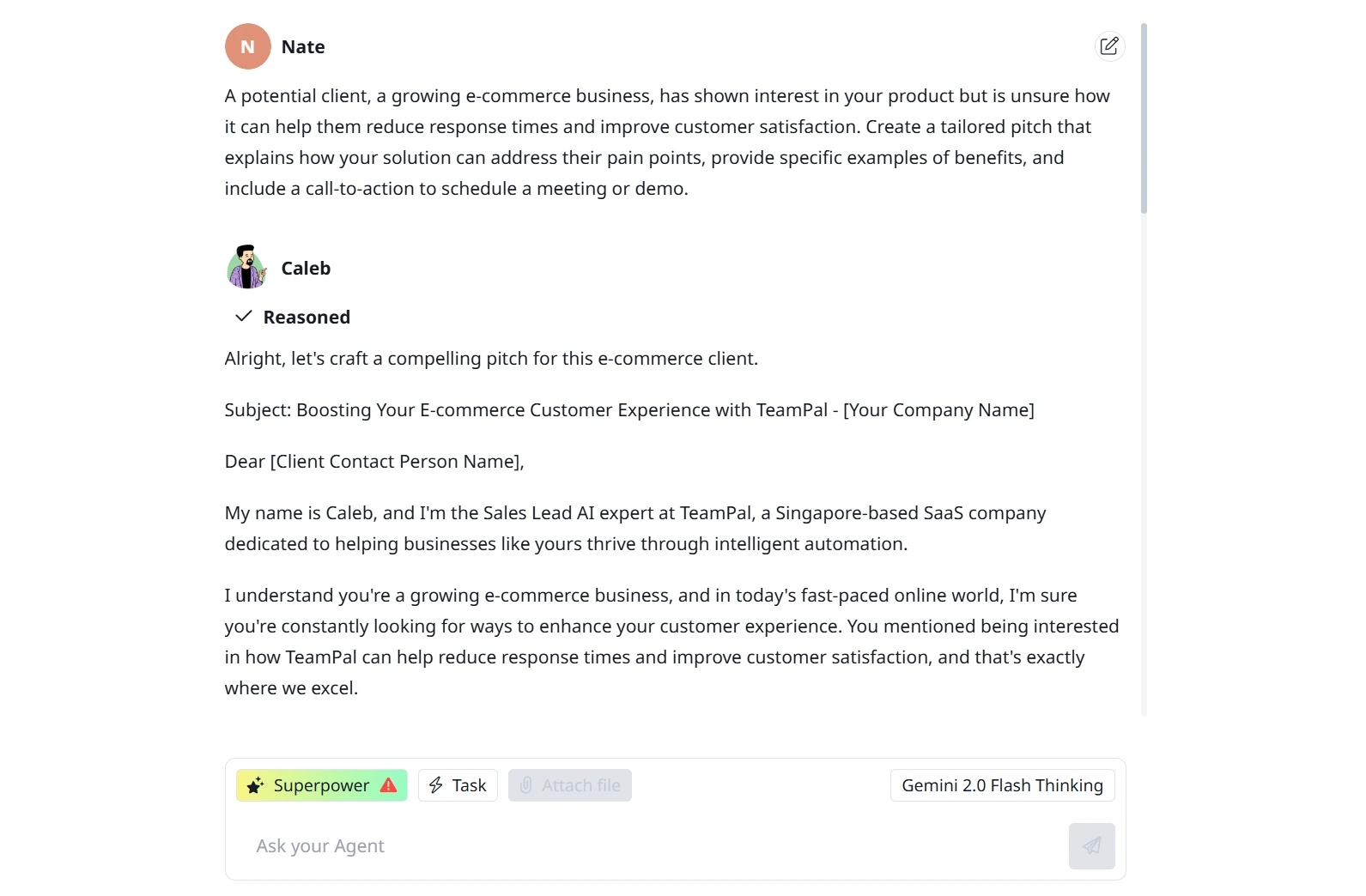
-
For quality and depth: Opt for GPT 4o, Claude 3.5 Sonnet, Claude 3.7 Sonnet, or Gemini 2.5 Pro Preview.
For content-heavy tasks, favor Claude 3.5 Sonnet, Claude 3.7 Sonnet, GPT 4o, or GPT 4.1 based on your accuracy and expense tolerance.
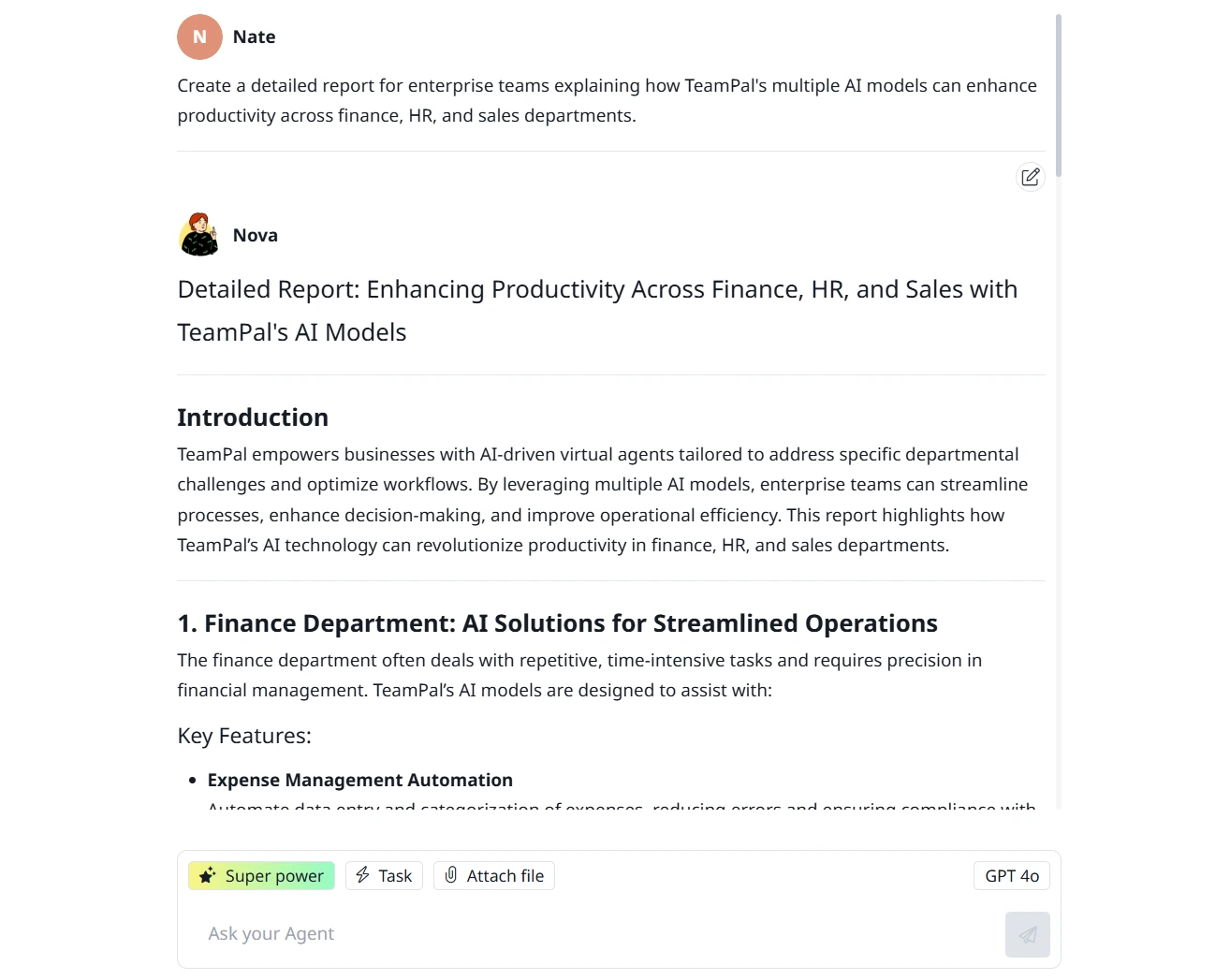
For mission-critical, high-resource tasks, Gemini 2.5 Pro Preview, Gemini 1.5 Pro, or Grok 3 Beta are the best choices for detailed performance.
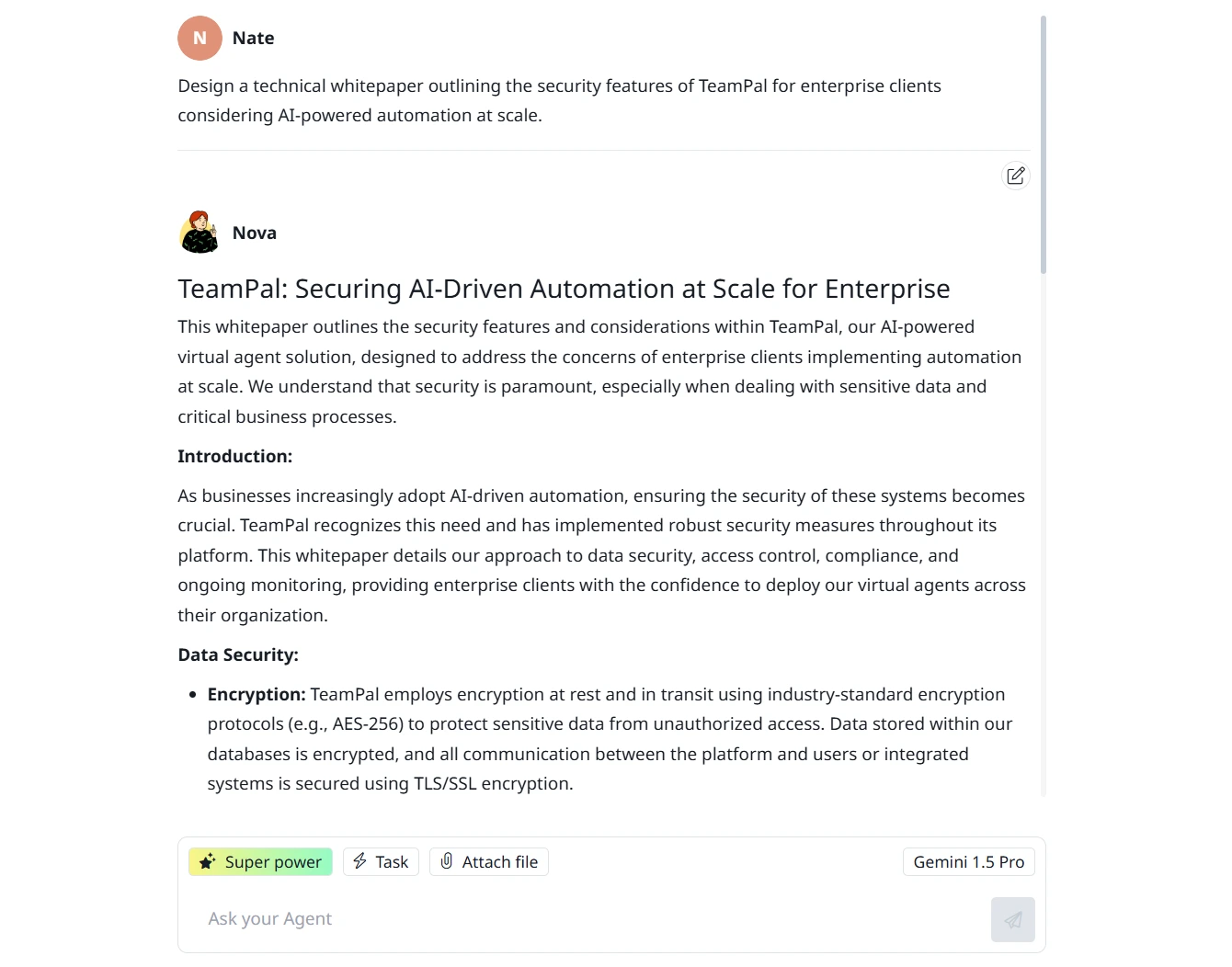
Reasoning Models
If your tasks require logical precision, advanced reasoning, or problem-solving, consider the following models:
-
o3 Mini: Ideal for science, math, and coding-focused tasks with reasoning capabilities.
-
Claude 3.7 Sonnet: Excels at sophisticated content creation with deep comprehension and reasoning.
-
Gemini 2.5 Pro Preview: Google’s state-of-the-art model for advanced reasoning over complex problems in code, math, and STEM.
-
Gemini 2.0 Flash Thinking: Balances speed and depth for fast reasoning tasks.
-
Deepseek R1: Specializes in logical precision and detailed analysis.
-
Grok 3 Mini Beta: Lightweight model for logic-based tasks with raw thinking traces.
-
Grok 3 Beta: xAI’s flagship model for enterprise tasks like data extraction, programming, and text summarization.
Tips for Getting Started
-
Pilot test: Test models on your specific tasks before committing significant credits.
-
Adjust as you scale: Start with economical models (e.g., GPT 4o Mini, Claude 3.5 Haiku, or Gemini 2.0 Flash Lite) and scale up to advanced models (e.g., GPT 4.1, o3 Mini, Gemini 2.0 Flash Thinking, Gemini 2.5 Pro Preview, or Claude 3.7 Sonnet) as your requirements become more complex.
-
Explore integrations: Leverage TeamPal's model compatibility with different skills to enhance functionality.
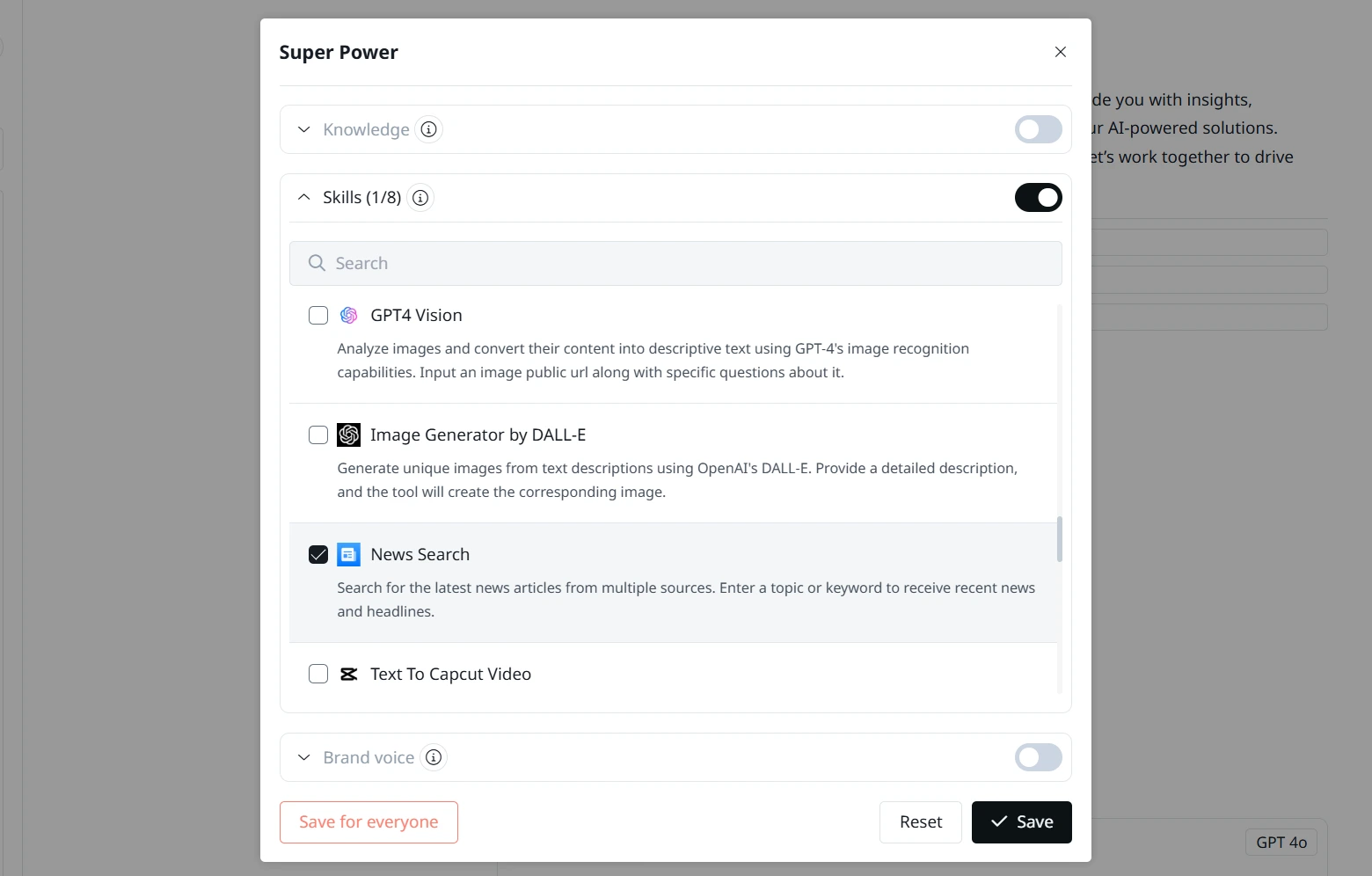
When in Doubt?
If you’re still unsure which model to choose, feel free to contact TeamPal Support at [email protected]. We’ll help you evaluate your requirements and recommend the best fit for your specific business needs.
Now, ready to try for yourself?





![[Product Update] Introducing Group Chat: Let Your AI Agents Work Together](/storage/photos/916/announcement-2/introducing-group-chat.webp)
![[Product Update] No More Prompt Copy & Paste: Meet Custom Tasks](/storage/photos/916/announcement-1/product-update-say-hello-to-custom-tasks.webp)









